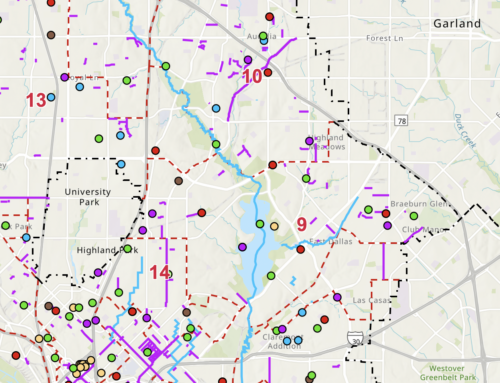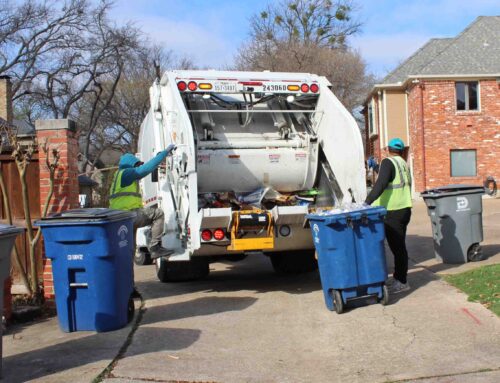City Council members not only make laws and set local policies, we also are involved with the state and federal governments. The City of Dallas has an aggressive program to influence state and national legislation that affects our community.
Mayor Ron Kirk appointed me chairman of the Council’s Legislative Affairs Committee. Working with my colleagues, the committee will direct efforts to ensure that state and federal laws reflect the needs of Dallas. Much of what the Texas Legislature in Austin and the U.S. Congress in Washington do impact our City.
A portion of your water and sanitation bill, for example, pays for unfunded mandates from the state and federal governments. Our annual budget will include more than $21 million to pay for requirements passed on to us by other lawmakers. Some of that money pays for testing the water supply for elements that can never occur in our drinking water.
For example, the federal government requires we spend a few hundred dollars to test for the presence of radon in our water. Radon can be found in water collected from underground wells. Dallas water comes from lakes, where radon is not present.
Telecommunications legislation pending in Congress threatened to take away a city’s ability to levy a franchise fee for telephone and other companies that use the public rights-of-way for their lines and fiber-optic cables. While this threat has apparently been eliminated, under this same bill the Federal Communications Commission may soon have the authority over placement of private companies’ cellular telephone towers – a right currently controlled by the local zoning process.
Congress also is targeting funding for housing, community development and human services that the City relies upon to provide for neighborhoods’ needs. The Legislative Affairs Committee and our City staff are busy working with members of congress to protect your interests.
Our legislative program was effective in the recent state session in Austin. All but a couple of our priorities were adopted by the Texas House and Senate. There were more than 5,000 bills filed during the session. Nearly 1,000 of them affected municipal governments. Of these, Dallas worked to defeat 138 bills that would have diminished our authority or had a negative fiscal impact.
The Texas telecommunications bill, similar to the federal legislation described above, was successfully amended to preserve the City’s right to control the use of public property and to receive fair compensation. By winning on this point, we avoided the potential loss of $20 million in revenue, which saves your property tax money.
We won victories on bills that will enable our law enforcement agencies to more effectively intervene in juvenile criminal behavior and to reduce sexual exploitation of children. This legislation includes authority to revoke drivers licenses of juveniles convicted of unlawfully carrying a weapon, and harsher penalties for violent gang offenses.
Insurance redlining is now against the law and a voluntary home inspection program can be started in our community to make it easier for homeowners to get coverage. This is particularly important in older neighborhoods, such as those in East Dallas, where some of us have had difficulty acquiring insurance.
The state legislature also passed bills giving more local authority over businesses that sell alcohol. One bill enables the City to prohibit new liquor establishments within 1,000 feet of a school. Another gives zoning authority over private clubs in dry areas in Dallas.
Much of the credit for our success goes to Dallas’ federal and state legislators, who champion the City’s issues. Several residents have volunteered to help us draft and seek passage of bills, and our dedicated staff has been critical in protecting the City’s interests.





